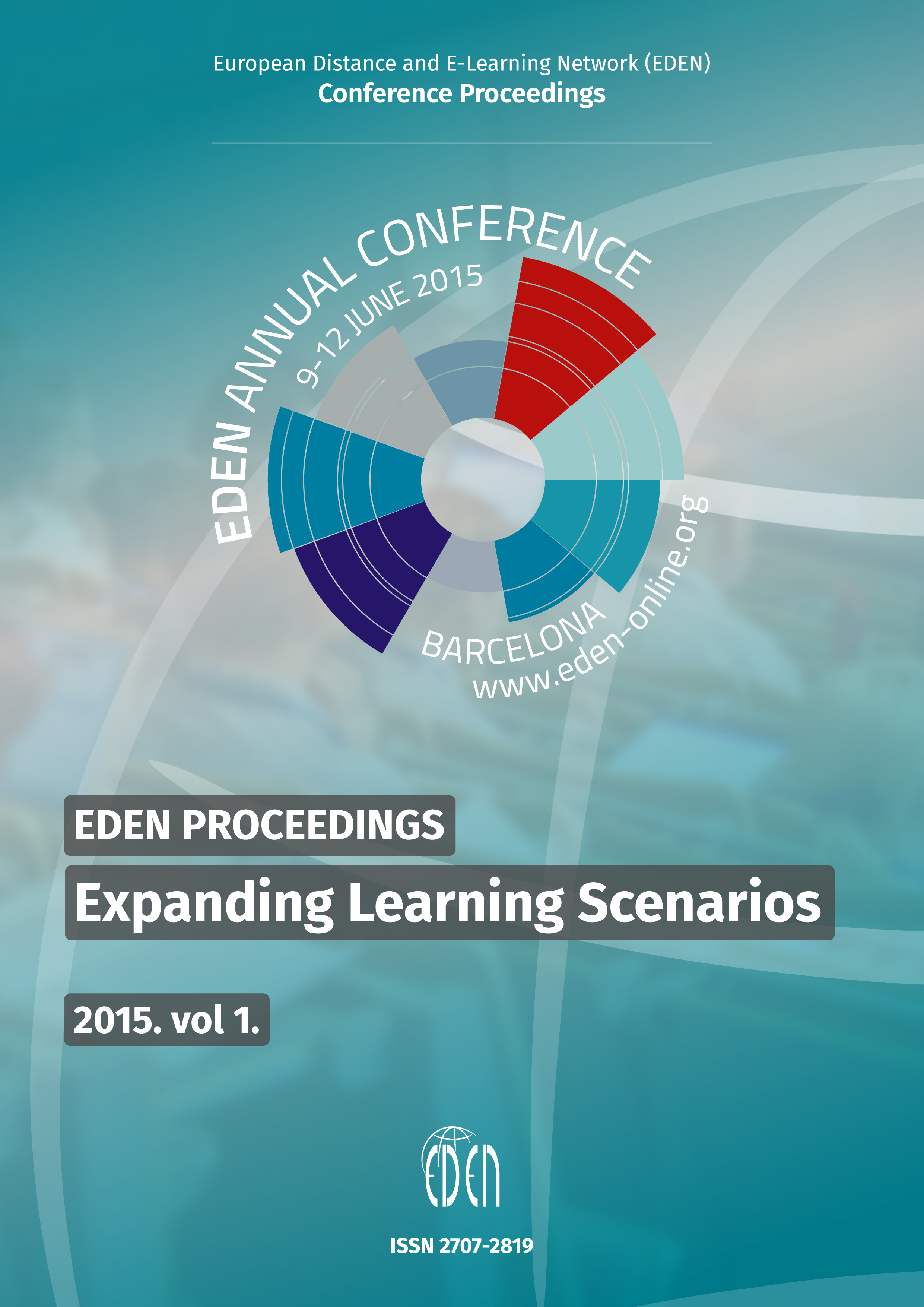Empowering Students by Co-Designing Expanded Learning Scenarios
Empowering Students by Co-Designing Expanded Learning Scenarios
Author(s): Elena Barbera, Ingrid Noguera, Iolanda GarciaSubject(s): Social Sciences, Education, Higher Education
Published by: European Distance and E-Learning Network
Keywords: Distance and e-learning methodology; Learner needs and motivations; learning co-design; Learning effectiveness; improvement of learning experience; Learning innovation; Networked learning
Summary/Abstract: Learner-centred environments and instruction involve the application of a variety of methods that place students and their learning activity at the centre of the teaching and learning process. This may materialise in different ways, but some common characteristics would be that learners are usually confronted with an authentic, ill-structured and contextualized task, in order to induce relevant learning experiences, as occurs for example with inquiry-based learning models. For many years researchers have been calling for a transition from teacher to student-centred environments and instruction. However, many features of teacher-centred models still remain in higher education practices. There are different perspectives that explain the tension between teacher-centred and student-centred models (Elen, Clarebout, Léonard & Lowyck, 2007). In this paper we sustain the transactional view, according to which teachers and students are jointly responsible for the success of the learning process. This means that teachers and students negotiate and decide together the tasks and roles that each one will assume in the process and, thereby, each other’s level of control over the learning process. Among other things, this may depend on the students’ capabilities and willingness to regulate their own process, as well as on their level of domain-specific prior knowledge. From this perspective, teachers continuously reassess and coach the gradual growth of students’ responsibilities and reorient their own tasks and role accordingly (Elen et al, 2007).
Journal: European Distance and E-Learning Network (EDEN) Conference Proceedings
- Issue Year: 2015
- Issue No: 1
- Page Range: 483-492
- Page Count: 10
- Language: English

